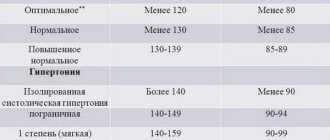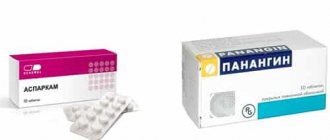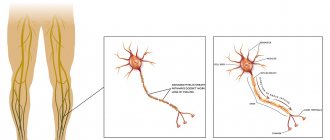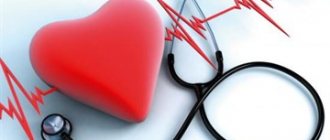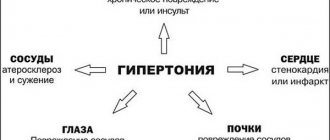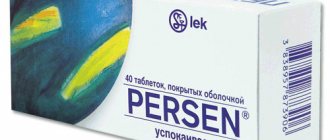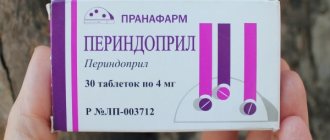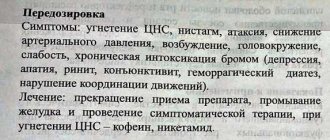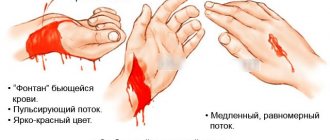Description of the drug
The therapeutic agent effectively resists hypertension, myocardial ischemia, and is also used for preventive purposes in some other cardiac pathologies. Bisoprolol-Prana has a complex effect on the heart tissue and circulatory system.
Release forms and prices for the drug
The drug is presented on the market as 5 and 10 mg film-coated tablets.
The medicine is sold in the following packages:
- plates – 1 package contains from 1 to 4 plates of 10 tablets each;
- polymer jar - can contain from 50 to 100 tablets.
Regardless of the form of the medication, both plates and jars are placed in a cardboard package along with instructions. The drug is a budget drug, which makes it accessible to all segments of the population. The price of the drug starts from 35 rubles. Check the exact cost with pharmacy chains in your region of residence.
Bisoprolol-Prana and Bisoprolol: what is the difference?
Both medications, regardless of their forms, contain the same active substance, which is bisoprolol (selective beta1-blocker). There are no fundamental differences between these two medications. They have the same effect on the body, but are manufactured by different manufacturers.
Bisoprolol-Prana is produced domestically, and Bisoprolol is a product of others, etc.).
Composition and mechanism of action
One tablet of the medicine contains the following components (Table 1).
Table 1 - Components of Bisoprolol Prana
| Component | Description of the drug component |
| bisoprolol hemifumarate (fumarate) 5 or 10 mg | active substance |
| microcrystalline cellulose | Excipients |
| magnesium stearate | |
| crospovidone | |
| colloidal silicon dioxide | |
| calcium hydrogen phosphate anhydrous | |
| corn starch | |
| iron oxide | shell components |
| dimethicone 100 | |
| titanium dioxide | |
| macrogol-400 |
Properties
You can determine what the drug helps with by studying the instructions. The active component belongs to the group of selective beta1-blockers, which are characterized by a rapid therapeutic effect and high efficiency in eliminating hypertension.
This drug has a number of positive cardiac effects, which leads to improved functioning of the heart and vascular system. The main pharmacological actions of the drug Bisoprolol-Prana are:

blocking beta1-adrenergic receptors located in the myocardium;- decrease in heart rate;
- suppression of the ability of cardiomyocytes to conduct bioelectric impulses;
- reduction in the number of contractions and reduction in the oxygen demand of cardiac myocytes;
- increase in diastolic interval;
- improvement of the natural blood supply to the myocardium.
The total effect of Bisoprolol on the myocardium is manifested in antiarrhythmic, antianginal and hypotensive effects.
Similar preparations
The original product based on bisoprolol is Concor tablets. They are produced in Germany.
Based on this medication, similar drugs have been developed containing the active ingredient bisoprolol fumarate.
Russian drug manufacturers produce beta-blockers under different trade names. An example is the drug “Bisoprolol-Prana”: its analogues have a dosage of 2.5 mg, 5 mg and 10 mg. These medications include tablets:
- "Bisogamma";
- "Nipperten";
- "Cordinorm";
- "Biprol."
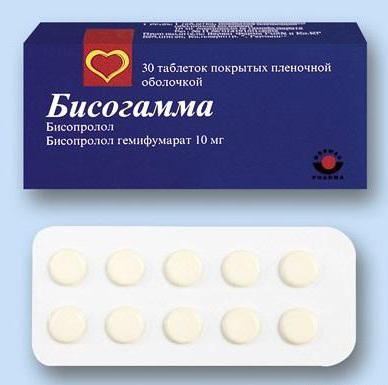
View gallery
Similar products are also produced by foreign companies. On the pharmaceutical market there are drugs whose name contains the name of the enterprise, for example, “Bisoprolol-Teva”, “Bisoprolol-Ratiopharm”, “Bisoprolol-Sandoz”, “Bisoprolol-Lugal”.
There are analogues called simply “Bisoprolol”. Such medicines are produced by Russian companies, CJSC Severnaya Zvezda, LLC Ozon Pharmaceuticals, and CJSC Biokom.
If you compare Bisoprolol and Bisoprolol-Prana tablets, the difference will be in the qualitative and quantitative composition of the auxiliary components. Such discrepancies do not affect the bioavailability and permeability of the active substance in the body, which means that the therapeutic effect of the drug will be the same.
Indications and contraindications
Drugs that contain selective beta1-blockers are used to eliminate disturbances in the functional functioning of the heart muscle and counteract high blood pressure.
Bisoprolol-Pran tablets are used for the therapeutic treatment of the following pathological conditions:
- hypertension (primary or secondary) is the main disease for which this medication is used. The drug can be used either alone or in combination with other treatment;
- CHF;
- oxygen starvation of cardiomyocytes;
- treatment and prevention of angina pectoris.
Note! Before use, it is recommended not only to read the instructions, but also to consult with a qualified cardiologist or therapist.
The use of the drug Bisoprolol-Prana is prohibited in the presence of the following pathological conditions:
- heart failure (both in acute form and at the stage of decompensation);
- severe forms of bronchial asthma (if they are present in the anamnesis);
- extreme stages of failure of local blood circulation;
- collapse;
- 2nd and 3rd degree AV block (if a pacemaker is not installed);
- sinoatrial block;
- Raynaud's disease;
- cardiogenic shock;
- metabolic acidosis;
- patient age category up to 18 years;
- allergic reactions to individual components of the drug.
Also, the manufacturer does not recommend the use of the drug Bisoprolol-Prana for certain conditions that increase the risk of side effects. These are:
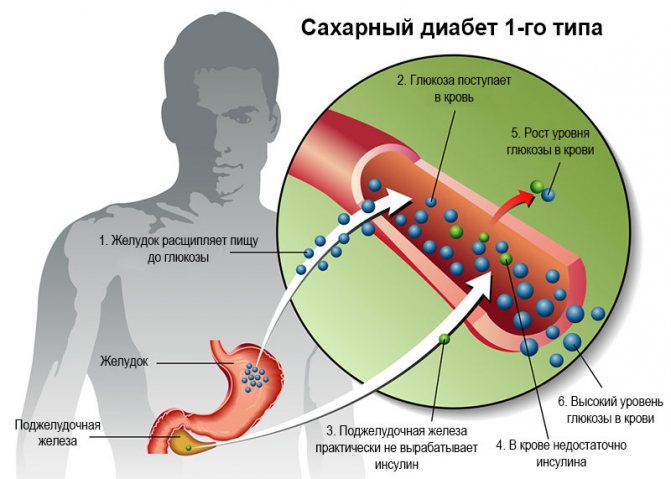
thyroid diseases;- severe forms of liver and kidney diseases;
- heart defects;
- serious disorders of the circulatory system;
- type 1 diabetes mellitus;
- if death of myocardial tissue has been recorded in the last three months.
In the presence of such conditions, it is necessary to consult with a doctor in advance, who will choose the optimal dosage of Bisoprolol in order to avoid negative consequences.
Instructions for use
The method of taking bisoprolol is practically no different from other antihypertensive drugs. Instructions for use of Bisoprolol Prana recommends taking it one tablet per day, in the morning on an empty stomach, with a small amount of water.
How to use?
The instructions for use do not contain any other specific instructions regarding the time and method of administration. It is important to observe the permissible dosage and follow the doctor's recommendations. Depending on the severity of hypertension, blood pressure dynamics and the body’s individual response to the action of a beta1-blocker, the doctor prescribes the dose size and course duration.
Dosage
The initial dosage of bisoprolol is 5 mg. It is used at the beginning of antihypertensive therapy to monitor the patient's response to the active substance. If Bisoprolol produces an insufficient hypotensive effect and does not produce undesirable side effects, then 1–2 weeks after the start of treatment, the doctor transfers the patient to maintenance therapy - 10 mg of bisoprolol per day.
Unlike ACE inhibitors, the 10 mg dosage is not prohibited for people with impaired renal function and patients over 65 years of age. The permissible dose of bisoprolol per day according to the instructions for use should not exceed 20 mg.
Special instructions for patients
Selective beta1-blockers, which include Bisoprolol Prana, contain a list of contraindications and restrictions for use in the instructions for use:
- individual hypersensitivity to the drug;
- acute heart failure;
- bradycardia (heart rate <60 beats per minute);
- history of bronchospasm and pulmonary obstruction;
- Raynaud's syndrome;
- severe form of hypotension (BP<100 mmHg);
- metabolic acidosis.
Bisoprolol is not recommended for children and adolescents under 18 years of age due to insufficient knowledge of the drug's effect for this group of patients. During pregnancy, Bisoprolol is prescribed in exceptional cases when the benefit to the mother's body outweighs the potential harmful effect on the fetus.
It is necessary to use Bisoprolol Prana with great caution in accordance with the restrictions in the instructions for use. The manufacturer warns in the instructions for use about possible side effects in the following conditions:
- pathologies of the thyroid gland;
- type 1 diabetes mellitus;
- severe form of renal failure;
- severe functional liver disorders;
- heart defects;
- severe hemodynamic disturbances;
- period after myocardial infarction suffered within 3 months.
In these conditions, the doctor can prescribe Bisoprolol only after carefully analyzing the possible side effects and choosing the minimum dosage.
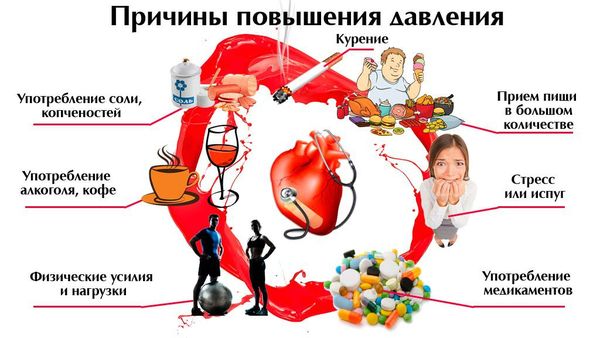
Common causes of high blood pressure
Method of therapy
In accordance with the instructions for use, it is recommended to take the tablets once a day in the morning on an empty stomach. If necessary, the dose can be increased according to the indications of the attending physician.
To eliminate arterial hypertension, ischemia and prevent angina pectoris, it is recommended to take Bisoprolol-Pran tablets five mg once a day. If ineffective, the dosage is increased, but not more than twenty mg per day.
For the therapeutic treatment of any pathology, the dosage of Bisoprolol is calculated individually for each patient, taking into account the number of heart contractions and concomitant diseases.
Note! Patients with functional disorders of the kidneys or liver can take no more than ten mg of the drug per day.
Bisoprolol
Bisoprolol is produced in tablets by several companies, so they may differ in the composition of inactive components. The drug is commercially available in dosages of 2.5/5/10 mg.
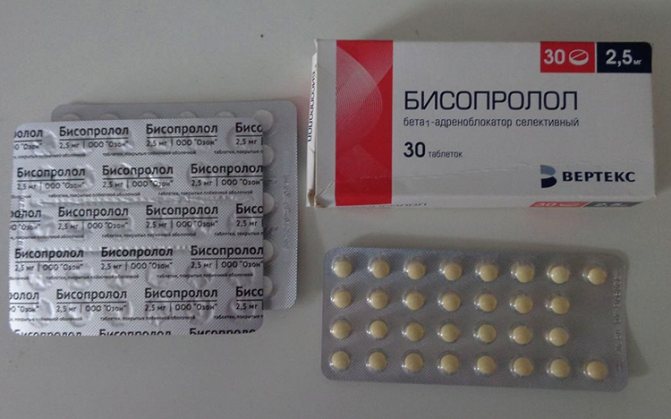
Bisoprolol is a selective β1-blocker . How it works at high blood pressure is not entirely clear. The medicine reduces renin activity in the body and blood pressure, the need for oxygen in the heart muscle, reduces heart rate, and has an antiarrhythmic and antianginal effect.
On the first day, OPSS increases, then within 3 days it normalizes, and then begins to decrease.
A decrease in pressure occurs within 5 days after the start of therapy, and a stable effect develops after 1 or 2 months of treatment .
Negative reactions of the body
If the patient has risk factors or does not comply with the rules for using the drug Bisoprolol-Prana, complications may occur, which are listed in the table below (Table 2).
Table 2 - Negative reactions
| Group | Possible side effects |
| Endocrinological | A pathologically elevated blood glucose level (in diabetic patients who do not use insulin) or a very low blood sugar level (in those who inject insulin). |
| Nervous system | Rapid onset of fatigue, dizziness, cephalalgia, constant desire to sleep or loss of sleep, depressive states, hallucinations, “scary” dreams, convulsive attacks. |
| Digestive system | Dry oral mucosa, nausea and vomiting, bowel disorders (constipation or diarrhea), in some rare cases - hepatitis. |
| Sense organs | Impaired visual functions, decreased secretion of tear fluid, a feeling of dryness and pain in the eyes, and sometimes conjunctivitis develops. |
| Heart contractions | Quite often, sinus bradycardia, a decrease in blood pressure, increased failure of local blood circulation, and a feeling of coldness in the lower extremities occur. |
| Leather | Increased sweating, redness of the skin, and in rare cases, the symptoms of psoriasis worsen. |
| Respiratory system | Difficulty breathing in case of overdose, bronchospasm, and in some situations - stuffy nose. |
| Allergy | The appearance of hives, itching or rash. |
| Musculoskeletal system | Weakness in the muscles, cramps in the calves. |
| Effect on the fetus in pregnant women | Growth retardation, reduced amount of glucose in the fetal blood, bradycardia. |
| Deviations in laboratory parameters | The activity of liver transaminases may increase, and in rare cases, agranulocytosis and thrombocytopenia develop. |
| Other | Potency disorders, increased attacks of angina, increased blood pressure. |
Side effects
When treated with Bisoprolol tablets, a variety of side effects may occur, including the following:
- dizziness and headaches;
- increased fatigue and confusion;
- hallucinations and sleep disturbances;
- muscle cramps;
- dryness of the ocular mucosa;
- inflammation of the conjunctiva;
- sinus type bradycardia;
- increased heart rate;
- cardiac conduction disturbance;
- AV block;
- shortness of breath and swelling of the legs;
- pain in the sternum;
- dry mouth and feeling of nausea;
- dyspepsia and changes in taste perception;
- swelling of the nasal mucosa and bronchospasm;
- hyper- or hypoglycemia;
- hypothyroidism;
- changes in blood composition according to the main elements;
- decreased sex drive.
Contraindications
It is not recommended to be treated with Bisoprolol tablets in the presence of diseases and conditions such as:
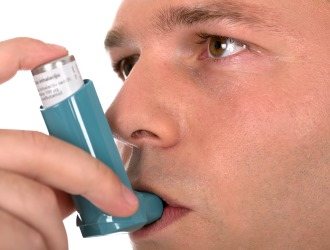
cardiogenic shock or other shock condition;- chronic heart failure;
- second and third degree blockade;
- hypotension;
- lung diseases, including bronchial asthma and obstructive disease;
- Raynaud's disease and other pathologies of peripheral circulation.
The drug is prescribed with extreme caution in the presence of pathologies such as liver or kidney failure, thyrotoxicosis, allergies to tablet components, diabetes mellitus and depressive conditions.
It is not customary to prescribe tablets to children whose age has not reached adulthood.
During pregnancy
When treated with Bisoprolol tablets in pregnant women, negative effects of the drug on the developing fetus may be observed. So, when taking pills, there is a change in the child’s heartbeat and inhibition of his growth.
In this regard, it should be prescribed to pregnant patients very carefully, and only if the risks to the fetus are low.
Analogs
If regional pharmacy chains do not have the drug Bisoprolol-Prana, then you can purchase its analogues, which have the same active substance. Medications based on beta1-blocker are the following:
- Biprol is a budget medicine manufactured by domestic companies.
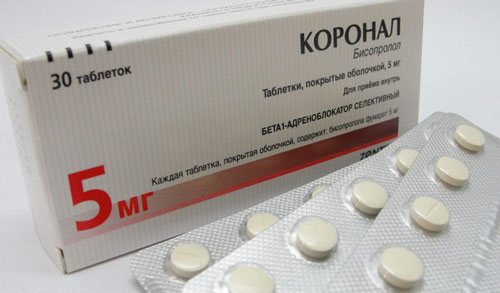
Coronal - tablets from the Slovak manufacturer Zentiva, which have a high cost.- Biol is a product of the German company Salutas Farma, which occupies a niche in the average pricing policy;
- Niperten is a domestic drug with an average cost.
- Aritel is a Russian product belonging to a lower price category.
There are no fundamental differences between them, since the active substance is bisoprolol. The cost varies only depending on the manufacturer, the cost of registering the product in the pharmacy and the cost of delivering the medication.
